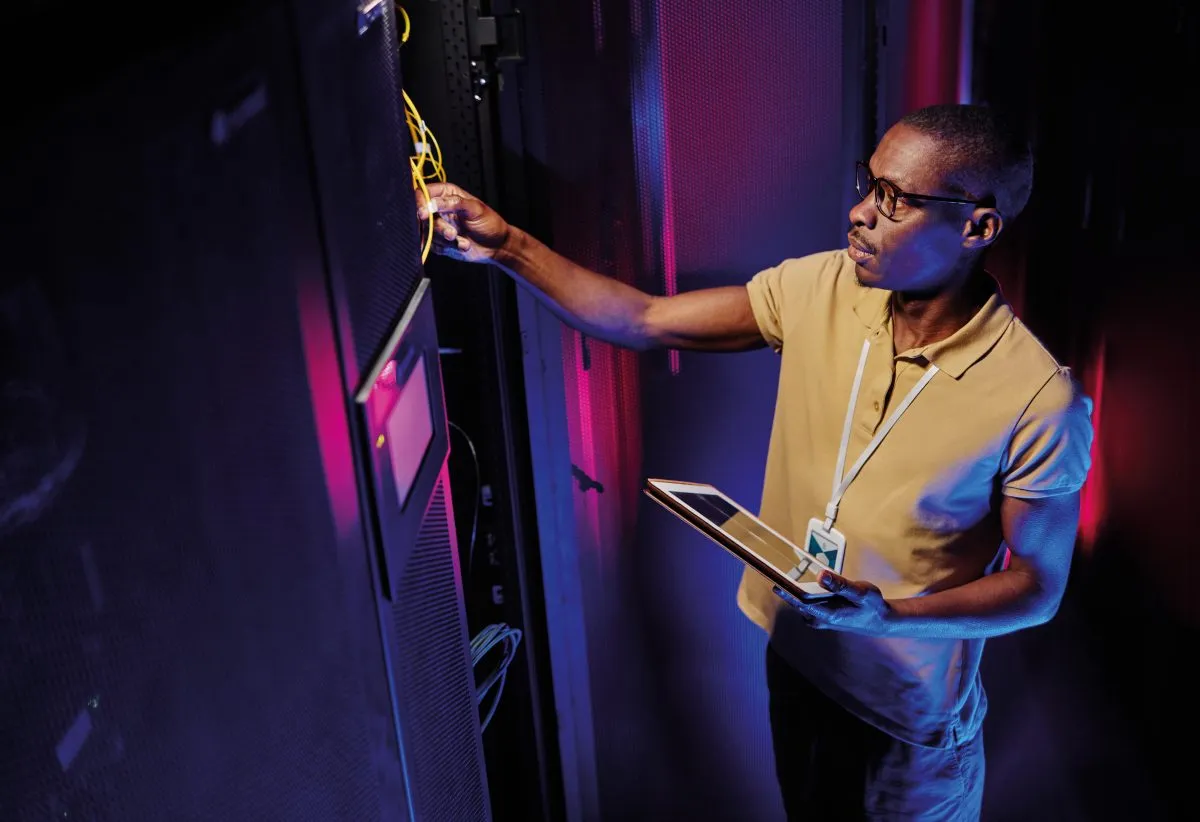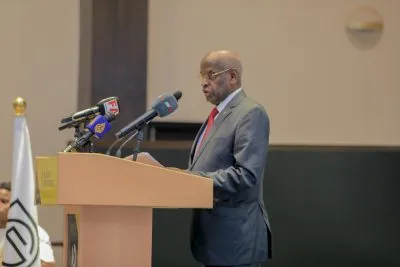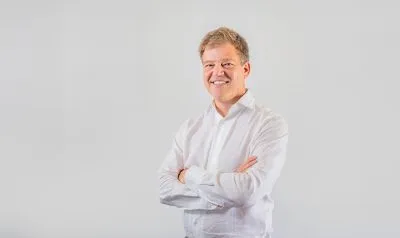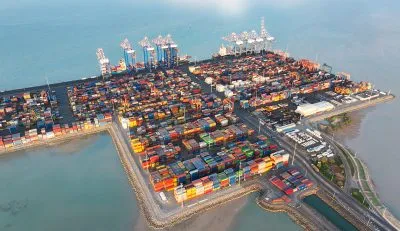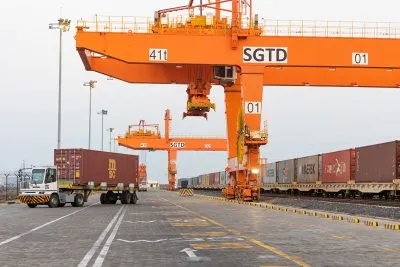Djibouti has no oil, gas or precious metal resources, but it does intend to develop another type of wealth on its soil. “Over the past fifteen years, we have invested $200 million in twelve submarine cables, making our territory an exchange and rallying point between Europe, the Middle East, Asia and Africa, thereby reinforcing connectivity and interoperability between the regions,” explains Mohamed Ahmed Mohamed, Director of International Business at the FSD owned operator Djibouti Telecom, one of the flagships of the national economy, which made around $100 million in EBITDA this year.
As with its port sector, Djibouti has capitalised on its ideal geographical location, at the junction of the Red Sea and the Indian Ocean, on the Europe-Asia maritime route. “To get to Europe, all the submarine cables pass through the Red Sea, and therefore potentially through our country,” explains Mohamed. “By setting up here, operators can easily switch cables and thus reach different parts of the planet. Today, Djibouti Telecom serves more than 50 telecoms operators with connections to over 90 countries.”
The latest cable in which the public operator has invested is called Sea-Me-We-6. It links Singapore to Marseille, covering a total distance of 19,200 km. It should improve the performance of communications networks and support the development of new technologies, such as the cloud and artificial intelligence. The public operator has no intention of stopping there: “We are already in discussions with other cable co-owners, as in the case of the Peace submarine cable, which is 12,000 km long and links Europe and Asia,” Mohamed continues.
Djibouti’s current twelve submarine cables pass through a protective corridor, monitored by satellite. Once on land, they are connected to four autonomous energy stations which are monitored round the clock.
According to Mohamed Ahmed Mohamed, “Investment in submarine cables has enabled us to build a structure on which we can now capitalise. The country can develop a digital economy, with the installation of start-ups and data centres. In the future, I think traffic will explode. But we need to improve the price of electricity to become more competitive. Today it’s 23 cents per kWh, which is enormous,” he says.
Diversifying the economy
The investments are in line with the Djibouti government’s strategy of making the country a digital hub. “Beyond the port activity, the information and communication technology sector offers an unprecedented opportunity to diversify our economy and stimulate innovation in new areas,” explains Mariam Hamadou Ali, who has been at the head of the Ministry of Digital Economy and Innovation since its creation in 2021 – a first for this small, particularly strategic country in the Horn of Africa. “Our submarine cable infrastructure puts us at the forefront of African countries in terms of international connectivity, reinforcing our position as a strategic centre for data and information exchange on a global scale.”
Today, the digital sector contributes 8% of Djibouti’s GDP. This figure includes various sectors such as submarine cable infrastructure, telecommunications, fintech and e-commerce. “A share that is set to grow,” says Minister Ali, who recently visited Marseille, France, to draw inspiration from the city, which in just a few years has become a hub for cable networks in Europe.
“We have recently launched initiatives to attract investment in data centres in a similar way,” she says. “These data centres will serve not only local needs in terms of data storage and processing, but also those of regional and international companies, thereby consolidating our position as a regional digital hub.” The Minister points out that the government’s ‘Djibouti smart nation’ programme comprises 150 projects with a total investment of $850 million.
Attracting major operators like Facebook and Google
Pan-African data centre operator Wingu Africa recognised the country’s connectivity potential early on. In 2013, the group opened a data centre on the premises of the 3G tower of Djibouti Telecom in the centre of the capital. Its niche is selling hosting services to international operators. This facility has served as a launch pad for opening three other data centres in the region, in Ethiopia, Tanzania and Somaliland.
On Djiboutian soil, the group is preparing to expand its operations with the imminent inauguration of a new data centre, called Djibouti City 2 – or DC2 – at a cost of $20 million. In its initial phase, this centre will be able to accommodate 200 racks, with a planned extension to 400 racks. An innovation centre will also be built on the DC2 site to promote technological innovation and entrepreneurship in Djibouti. “Last year, we finalised an important agreement with AMS-IX, one of the world’s largest internet exchanges, which will replace the Djibouti Internet Exchange and considerably improve regional interconnection within our ecosystem,” explains Anthony Voscarides, CEO of Wingu Africa.
Ultimately, the group hopes to attract behemoths such as Facebook, Google and Amazon, so that it can serve end-customers directly, without transiting through Europe or another continent, as is the case today. The arrival of these big fish would considerably improve the latency of the regional internet connection. It would also give a new dimension to Djibouti’s digital ambitions.
For Voscarides, the country’s regulatory framework is conducive to investment. “The government is flexible, willing and open to accommodate projects, which makes the Djibouti business landscape simpler than that of other African neighbours. What’s more, the favourable tax system, the ease with which foreign investment can be repatriated and the currency’s peg to the US dollar provide strong incentives for growth in many sectors, including technology,” he says.
The CEO of Wingu Africa is also keen to commend Djibouti’s energy policy, which places the emphasis on renewable energy. “Today, 90% of the energy in our data centres comes from renewable sources,” he explains, “and this figure is set to rise to over 97% in the near future.”
The price of electricity, however, is an obstacle to the development of the digital industry. According to Mohamed Ahmed Mohamed at Djibouti Telecom, “In Djibouti, we are betting heavily on the deployment of renewable energy sources to bring down the cost of energy. Generally speaking, this is a challenge that concerns the entire African continent.”
Another challenge for the government is to develop the domestic market, which has been criticised for the quality of its internet speed, despite the presence of submarine cables on its soil.
Towards opening up Djibouti Telecom’s capital?
To encourage competition, stimulate innovation and improve the quality of services, the government has for some years been considering opening up the capital of Djibouti Telecom, one of the pillars of its economy and the only one, like the port sector, with the capacity to operate internationally.
“Opening up Djibouti Telecom’s capital will make it possible to attract national and international private investment to modernise and extend its infrastructure, improve the quality of its services and strengthen its competitiveness on the market,” explains Minister Ali.
At the same time, the government is also in favour of the arrival of a new operator on the telecommunications market in Djibouti. “The introduction of new players will make it possible to boost competition, encourage innovation and respond more effectively to consumer needs by offering a greater variety of services and more competitive rates,” Minister Ali says, pointing to the country’s progress in terms of internet connectivity, which rose from 6% in 2012 to 61% by 2022.
The Minister is also optimistic about the future. “Over the next ten to fifteen years, I see Djibouti moving towards a dynamic and prosperous digital future, characterised by a thriving digital economy, world-class connectivity and an innovative and inclusive society,” she says.
Want to continue reading? Subscribe today.
You've read all your free articles for this month! Subscribe now to enjoy full access to our content.
Digital Monthly
£8.00 / month
Receive full unlimited access to our articles, opinions, podcasts and more.
Digital Yearly
£70.00 / year
Our best value offer - save £26 and gain access to all of our digital content for an entire year!

 Sign in with Google
Sign in with Google 